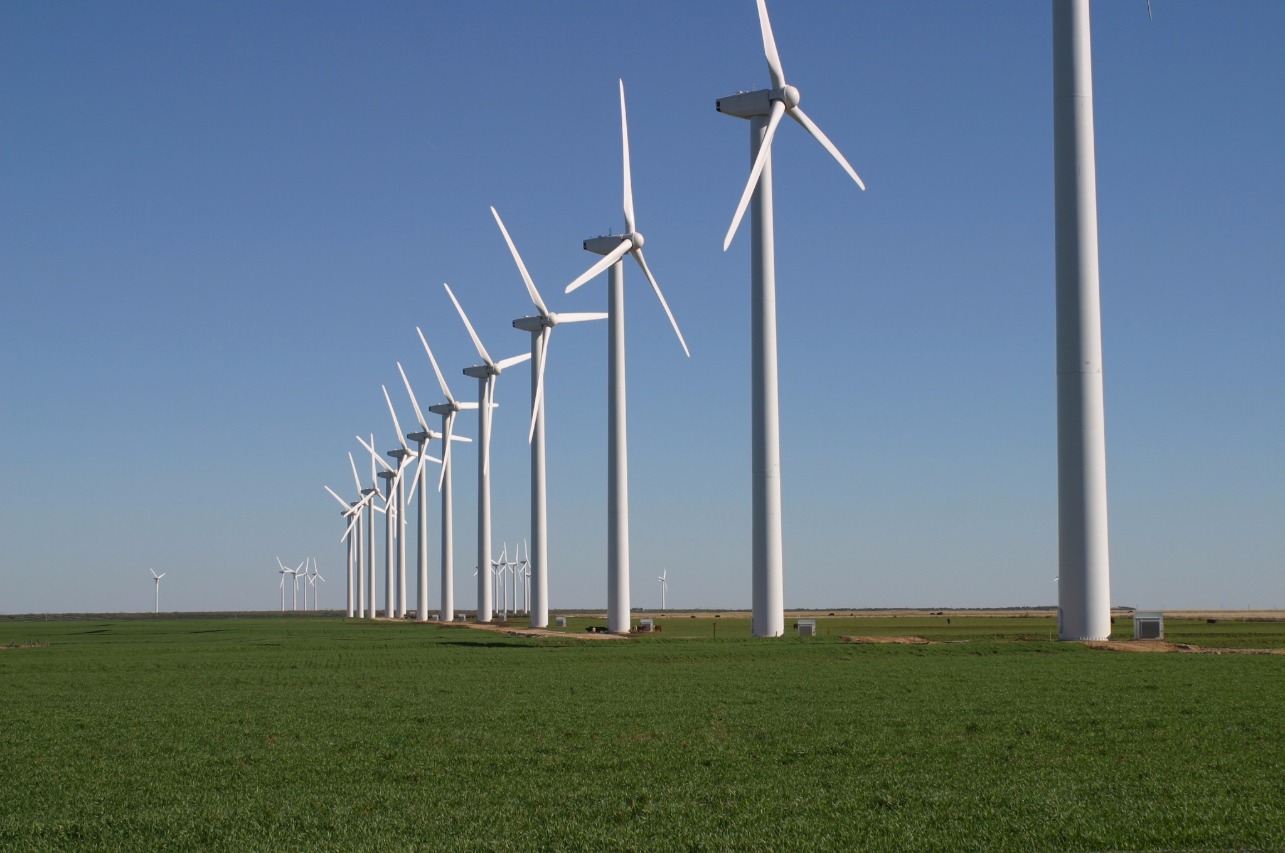
Keeping dust levels low on wind farms is crucial for safety and productivity.
Fugitive dust can become a dangerous issue on any industrial site, but especially when windy conditions are there to kick it up and exacerbate the problem. It comes as no surprise, then, that the presence of fugitive particles is especially problematic at wind farms. While a certain amount of dust is inevitable at these facilities, when dust levels are too high, they pose a serious threat to the efficient operation of the site and the safety of workers.
Where There’s a Wind Farm, There’s Dust
Companies position wind farms in areas strategically chosen for the prevalence of high winds. When those winds blow, fugitive particles escape from unpaved roads, which often connect employees to the network of windmills. When agitated by traffic or wind, these tiny particles of dust from the road’s top layer are released into the air.
Simply ignoring dust at wind farms is not an option, as doing so only leads to health and visibility hazards for workers, negative effects on construction and day-to-day operations, and even potential violations of government regulations and subsequent fines. Fugitive particles are so tightly regulated that specific local and state bodies have been set up to monitor particulate matter (PM) levels. In counties or areas with traditionally poor air quality, these regulations are even stricter. To protect their workers and their pocketbooks, wind farm operators must choose from one of several dust control methods available on the market today.
Driving Dust Out
Since unpaved roads create high levels of dust when in use, some wind farm operators impose traffic restrictions to keep these fugitive emissions to a minimum. Vehicles of any sort erode road surfaces, especially heavy vehicles and machinery used in industrial operations. Unpaved surfaces at construction sites have been known to erode at a rapid rate, and also create the highest level of sediment runoff in heavy rain. However, vehicle restrictions are not always practical or feasible — after all, the work must be done.
Paving these roads may seem like an obvious fix, but many site operators lack the budget or time to commit to this expensive endeavor. Gravel and slag roads represent a decent middle ground between paved and unpaved options, but require more maintenance and care.
The Problems with Watering
Another way dust is suppressed at wind farms is through watering — that is, operators use water trucks to regularly hose down roads, which theoretically keeps dust levels low by keeping road moisture levels high. While watering can be effective at suppressing dust in the very short term, it simultaneously erodes road surfaces at a higher rate by steadily washing away parts of the road, creating what’s known as the negative cycle of watering.
As opposed to custom-designed dust control programs and products, water evaporates quickly and must be reapplied at a very high frequency. Water quickly breaks down the road surface and separates the particles at the very top from the rest of the road, creating poor road quality and more dust. What’s worse, the water also makes the particles smaller, which leads to more runoff and sediment in water.
Chemical Dust Suppressants
Finally, some turn to chemical surface treatments to control dust. These fluids are applied in such a way that they coat and physically alter roads and surfaces, creating a barrier that locks in dust particles rather than allowing them to infiltrate the environment. This preserves road quality and durability while also minimizing dust.
For effective chemical dust control, look to Midwest Industrial Supply, Inc. With several decades of dust control experience with clients across every sector, we work with each individual customer to devise a plan that will get them the exact level of dust control they need, regardless of budget or site type.
Our chemical dust control products will reduce your time-consuming concerns about fugitive particles and allow you to put your faith in unpaved roads and surfaces that will be long-lasting and erosion-resistant. These solutions will save you time and money and keeping your wind farm safer and more efficient.


